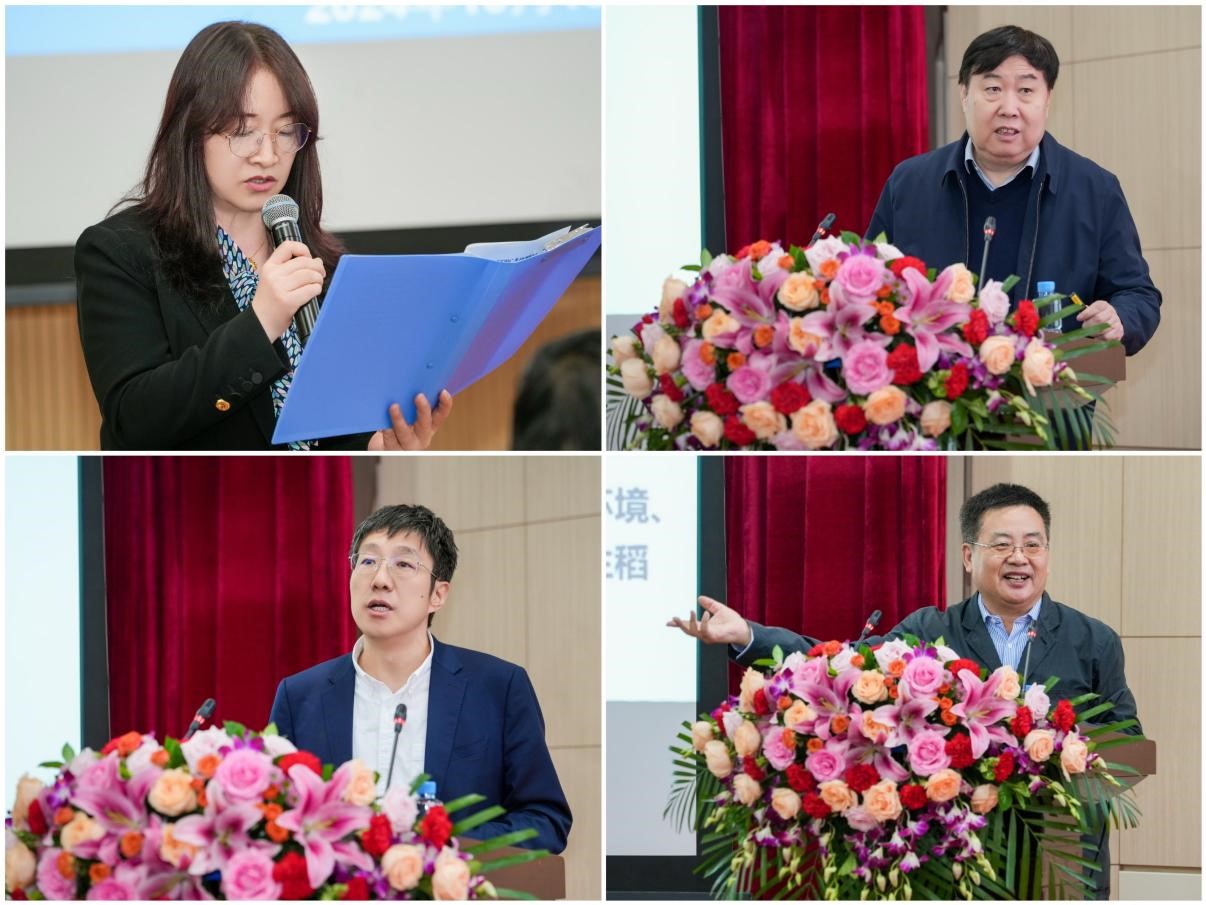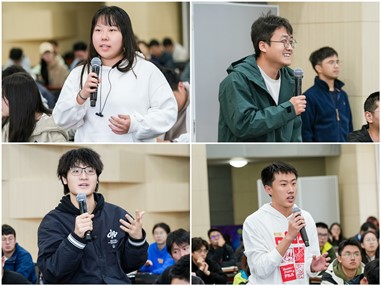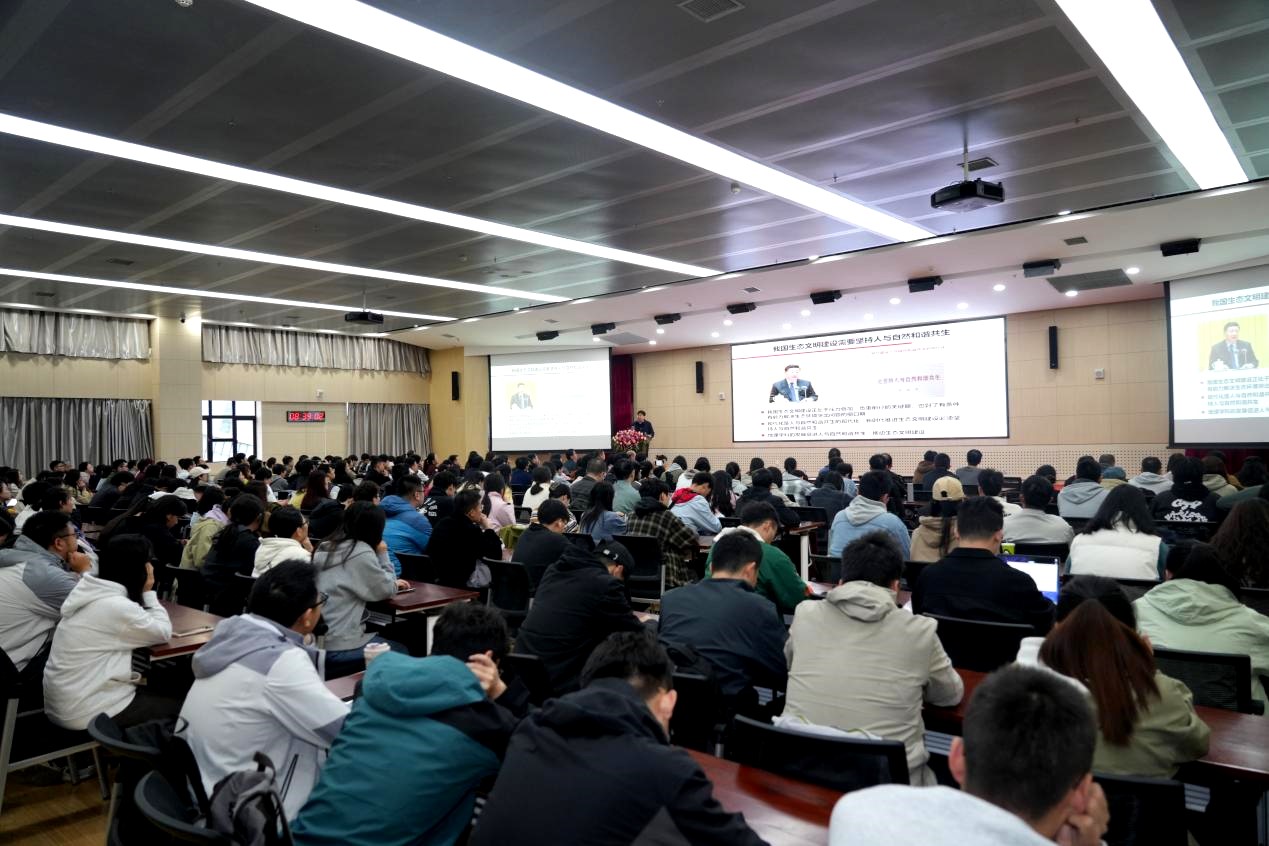On the morning of October 19, 2024, Academician Fu Bojie from the Institute of Ecology and Environmental Research, Chinese Academy of Sciences, Researcher Lü Houyuan from the Institute of Geology and Geophysics, Chinese Academy of Sciences, and Researcher Li Xin from the Institute of Tibetan Plateau Research, Chinese Academy of Sciences, were invited to the "Centennial Lanzhou University·Celebrity Forum" to deliver the 234th academic report. The report session took place in the Guochuan Lecture Hall of the Yifu Biological Building at the Chengguan Campus, and was hosted by Professor Gou Xiaohua, Vice President of Lanzhou University.

Academician Fu Bojie presented a report titled "Coupling of Human-Earth Systems and Regional Sustainable Development." He discussed the unprecedented pressures currently facing global resources and the environment, highlighting how ensuring sustainable development for human society is a major scientific and policy issue of global concern. Understanding the dynamics of elements within the human-earth system, the coupling mechanisms, and regulatory pathways provides a solid theoretical foundation for regional sustainable development. Academician Fu first analyzed the content of two recent international geography conferences (the 35th IGC and the 2024 AAG), pointing out the current frontiers and hotspots in international geography research and aspects of Chinese geography worth emulating. He then systematically discussed the current understanding of human-earth system coupling, feedback mechanisms, and the progress of coupling model research. Finally, he introduced case studies on coupling research in the fragile ecological region of the Loess Plateau, emphasizing the significant role geography plays in sustainable development research.
Researcher Lü Houyuan from the Institute of Geology and Geophysics presented a report titled "The Intersection of Earth Sciences and Archaeology." He noted that interdisciplinary collaboration is becoming a mainstream trend in scientific research. Using two typical case studies of interdisciplinary research—“The Origin of Rice” and “Noodles from Four Thousand Years Ago”—Researcher Lü vividly narrated the background, experiments, results, discoveries, impacts, and controversies surrounding these studies. Through a comprehensive review and recounting of the research process, he concluded with insights gained from conducting interdisciplinary research between earth sciences and archaeology.

Researcher Li Xin from the Institute of Tibetan Plateau Research delivered a report titled "Enhancing the Interpretability of Artificial Intelligence in Earth System Science: The Combination of Data Assimilation and Reinforcement Learning." He discussed the rapid advancement of artificial intelligence, which is driving many disciplines to shift from data-intensive science to AI science. In his report, Researcher Li introduced the concepts of complex systems, data assimilation, and reinforcement learning, along with research cases in geosciences. He highlighted how scientific big data will drive the development of new geosciences, and how combining deep learning with physics-informed machine learning and causal inference can enhance transferability, interpretability, and predictability in earth system science research, ultimately promoting the realization of AI tools aimed at earth system science.

After the presentations, Professor Gou Xiaohua summarized the content of the reports and expressed heartfelt gratitude to the three speakers. This session was part of a series of activities related to the third meeting of the fifth academic committee of the Key Laboratory of Western China's Environmental Systems, Ministry of Education, providing a valuable opportunity to strengthen academic exchanges. Faculty and students engaged in lively discussions regarding the content of the reports, deepening their understanding of important research topics such as human-earth system coupling and regional sustainable development, the intersection of geology and archaeology, and artificial intelligence in earth system science, which will have significant implications for future related research.
Over 300 participants, including faculty and students from the School of Earth and Environmental Sciences, the Key Laboratory of Western China's Environmental Systems, and various colleges across the university, attended the report session.